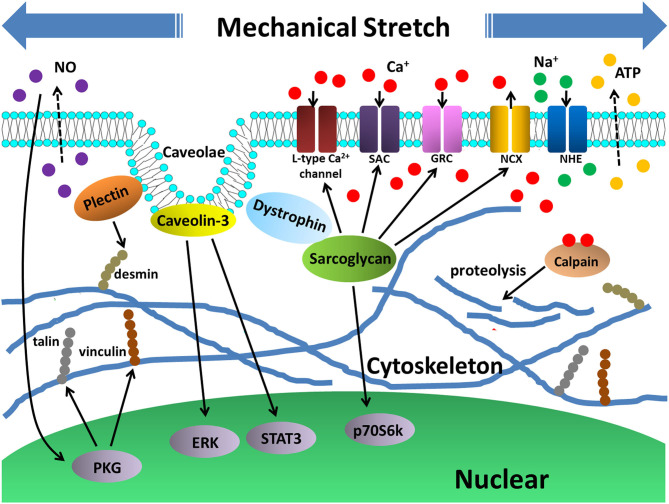Figure 3.
Stretch-induced myotube cytoskeletal reconstruction and cellular damage. Cytoskeletal proteins such as sarcoglycan, plectin, as well as membrane caveolae protein caveolin-3 are all critical proteins that participated in myotube cytoskeleton adaptation to mechanical stretch by activating signalings such as p70S6K, STAT3, ERK. In addition, release of NO also played a role in activating PKG pathway. The activation of these pathways contributed to expressions of structure proteins desmin, talin and vinculin, which are beneficial to reconstructions of myotube cytoskeleton. On the other hand, deficiency of the sarcoglycan led to abnormal activities of Ca2+ and Na+ channels, which caused intracellular Ca2+ overloading and activation of Ca2+ dependent hydrolase, calpain, that promoted cytoskeletal protein proteolysis and cellular damage.

